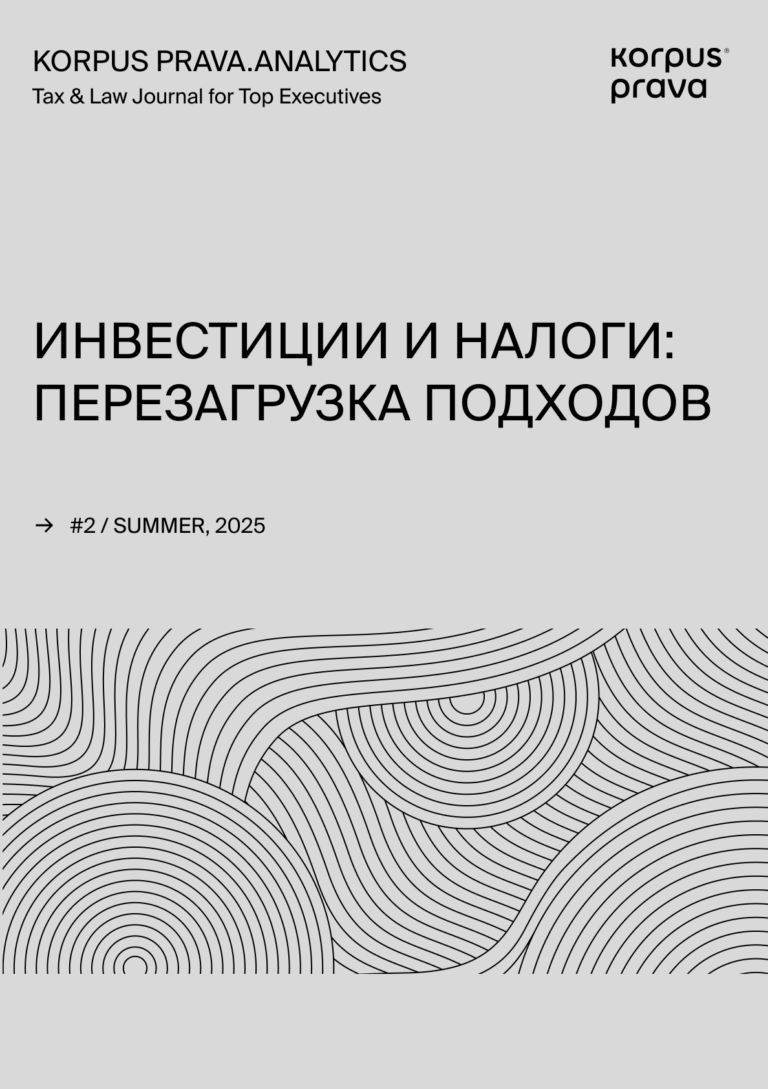Арендатор vs арендодатель: на чьей стороне вирус?
Многие организации-арендаторы в текущих условиях столкнулись с проблемой – им приходится платить арендные платежи за пустующие помещения (офисы, магазины, павильоны). Причем эта проблема коснулась всех – у кого-то все сотрудники работают на «удаленке», у кого-то приостановлена деятельность в силу ограничительных мер, у кого-то нет возможности пользоваться арендованным помещением в связи с закрытием торгового (офисного) центра. Есть и те, кого не коснулись вышеуказанные запреты, но по причине введения режима самоизоляции снизился поток покупателей, в связи с чем резко сократилась выручка, и платить аренду стало не с чего.
В целях снижения издержек целесообразно договориться с арендодателем – об отсрочке, уменьшении арендной платы, арендных каникулах или о расторжении договора по обоюдному согласию на взаимовыгодных условиях.
Какие вопросы, как правило, возникают у арендаторов в такой ситуации? Предлагаем их разобрать.
Можно ли перестать платить арендную плату?
Пускать решение этого вопроса на самотек, просто перестав платить арендные платежи, однозначно не стоит. Это повлечет накопление суммы задолженности и последующее предъявление арендодателем претензии с учетом сумм штрафных санкций. При этом требования арендодателя однозначно будут удовлетворены судом.
Конечно, судебный процесс может затянуться, и исполнение решения суда может быть нетривиальным занятием для арендодателя, но возможность привлечения к субсидиарной ответственности контролирующих лиц арендатора никто не отменял.
Освобождает ли форс-мажор арендатора от уплаты арендной платы?
Следует понимать, что эпидемии и прочие подобные явления в большинстве случаев не являются сами по себе обстоятельством непреодолимой силы (форс-мажором). Таковым являются вводимые впоследствии ограничительные меры. Так, введение ограничительных мер в целях препятствия распространению вирусной инфекции уже признано в качестве чрезвычайных, непредвидимых, непредотвратимых, находящихся вне контроля сторон и оказывающих существенное влияние на исполнение обязательств по хозяйственным договорам (см. Письмо Торгово-Промышленной Палаты РФ исх.ПР-0315 от 26.03.2020, а также разъяснения других органов государственной власти: Письмо ФАС России от 18 марта 2020 г. N ИА/21684/20, Письмо Минфина России от 19 марта 2020 г. N 24-06-06/21324).
Но проблема заключается в том, что по общему правилу (п. 3 ст. 401 ГК РФ) арендатор может быть освобожден от ответственности за нарушение обязательств (по оплате аренды) в том случае, если он не исполнил их из-за обстоятельств непреодолимой силы. Здесь важно понимать, что предполагается освобождение от ответственности за неисполнение обязательства (неустойки, штрафы, пени), а не от самого обязательства по уплате арендной платы.
Невозможность уплаты арендной платы арендатором ведь никак напрямую не связана с вирусной инфекцией 2020 года? Очевидно, что нет – она может быть связана со снижением доходов (выручки) арендатора, с ростом курса валюты, со снижением платежеспособности покупателей и т.д., т.е. с явлениями, которые стали последствием распространением вирусной инфекции, введением на ее фоне ограничительных мер, а также проявлением кризисных явлений.
Московская торгово-промышленная палата также неоднократно давала разъяснения о том, что форс-мажор не влияет и не может влиять на возможность исполнения арендатором обязательств по арендной плате, в связи с чем большая часть обращений арендаторов о выдаче свидетельств о форс-мажоре остается без удовлетворения1.
Более подробно о форс-мажоре и наиболее частых вопросах по нему см. в моей статье «В поисках форс-мажора…»
Какие меры поддержки предусмотрены для арендаторов?
Меры поддержки, анонсированные для арендаторов, закреплены в следующих нормативных актах:
- Распоряжение Правительства РФ от 19.03.2020 № 670-р «О мерах поддержки субъектов малого и среднего предпринимательства»;
- статья 19 Федерального закона от 01.04.2020 № 98-ФЗ «О внесении изменений в отдельные законодательные акты Российской Федерации по вопросам предупреждения и ликвидации чрезвычайных ситуаций»;
- Постановление Правительства РФ от 03.04.2020 N 439 «Об установлении требований к условиям и срокам отсрочки уплаты арендной платы по договорам аренды недвижимого имущества».
Сводная информация о предоставленных мерах поддержки представлена в таблице ниже:


Если резюмировать представленную в статье информацию, то можно сделать следующие выводы:
- меры поддержки, в основном, предоставлены субъектам малого и среднего предпринимательства, а также хозяйствующим субъектам, осуществляющим деятельность в наиболее пострадавших отраслях;
- меры поддержки (в т.ч. в виде отсрочки, арендных каникул) применяются не автоматически, а только после заключения соответствующих дополнительных соглашений к договорам аренды. При этом арендодатель может отказать арендатору в предоставлении отсрочки, и не подписывать такое соглашение – никаких мер ответственности для него не предусмотрено. У арендатора есть возможность понудить арендодателя к заключению дополнительного соглашения (при наличии оснований для предоставления отсрочки) в судебном порядке, но процесс может потребовать соответствующих временных и финансовых затрат.
Таким образом, указанные меры поддержки вряд ли будут широко использоваться – как в связи с ограниченным кругом лиц, на которых они распространяются, так и в связи с отсутствием эффективного механизма их реализации.
Как уговорить арендодателя пойти на встречу арендатору?
Как было указано выше, самым эффективным способом урегулирования возникшей ситуации является выстраивание правильного диалога с арендодателем. При этом, безусловно, не стоит рассчитывать на предоставление со стороны арендодателя полного освобождения от уплаты арендной платы – стороны должны найти «золотую середину», взаимовыгодный компромисс, который позволит разделить сторонам бремя издержек, возникших в связи с «коронакризисом», с соблюдением баланса интересов обеих сторон.
Интерес арендатора в данном случае понятен и очевиден. А в чем может быть интерес для арендодателя? Как можно его убедить сделать шаг навстречу арендатору? Ниже представлены доводы, которые могут выступить мотиваторами для арендодателя:
- проявление жесткости в диалоге с арендатором может привести арендодателя в суд. Безусловно, он взыщет с арендатора и задолженность по арендной плате, и суммы начисленных штрафных санкций. Но судебный процесс может затянуться, а судебное решение еще нужно исполнить (у арендатора может просто не оказаться денежных средств и активов для удовлетворения требований арендодателя);
- арендатор при возникновении спора может подстраховаться и сослаться на форс-мажор (если конечно удастся доказать связь между форс-мажором и неисполнением обязанности по оплате). Это даст шанс арендатору рассчитывать на освобождение от ответственности (от начисленных штрафных санкций);
- можно сослаться на статью 19 Федерального закона от 01.04.2020 № 98-ФЗ, которая обязывает всех арендодателей предоставлять отсрочку и уменьшать арендную плату на период невозможности использования арендуемого объекта. Данная норма, безусловно, является по большому счету исключительно декларативной и необязательна к применению, но в качестве довода в диалоге с арендодателем ее можно использовать;
- дополнительным аргументом для арендодателя могут служить экономические меры поддержки, принимаемые в каждом конкретном регионе для собственников, снижающих ставки для пострадавших от пандемии арендаторов. Например, в отношении Москвы подобные меры установлены Постановлением Правительства г. Москвы от 24.03.2020 №212-ПП;
- проявить гибкость в диалоге с арендатором может быть гораздо выгоднее, сделав временные уступки и сохранив для себя на будущее стабильного партнера, чем впоследствии в условиях кризиса попытаться найти новых арендаторов и сдать пустующие помещения.
Каким способом можно расторгнуть договор аренды?
В первую очередь, необходимо проанализировать договор на предмет наличия положений, предусматривающих возможность расторжения договора аренды в одностороннем порядке и порядок такого расторжения.
Гражданский кодекс РФ предусматривает единственную возможность для расторжения договора аренды по инициативе арендатора в одностороннем внесудебном порядке. Такое расторжение допустимо только в отношении договоров, заключенных на неопределенный срок. Арендатор вправе выйти из такого договора, предупредив об этом арендодателя за один месяц.
В отношении других договоров аренды такое право арендатору не предоставлено. Однако, в условиях форс-мажора арендатор может воспользоваться статьей 451 Гражданского кодекса РФ и предъявить требование о расторжении договора в судебном порядке.
Так, в соответствии с пунктом 1 статьи 451 Гражданского кодекса РФ, если обстоятельства, из которых стороны исходили при заключении договора, претерпели существенные изменения, каждая из сторон вправе обратиться в суд с требованием о расторжении договора. Изменение обстоятельств признается существенным, когда они изменились настолько, что, если бы стороны могли это разумно предвидеть, договор вообще не был бы ими заключен или был бы заключен на значительно отличающихся условиях.
С большей долей вероятности, договор аренды будет расторгнут арендатором в судебном порядке. Однако это является не столько панацеей, сколько крайней мерой, поскольку судебный процесс может затянуться во времени (особенно учитывая временную парализацию работы судов и их последующую прогнозируемую перегруженность), а договор будет считаться расторгнутым только с момента вступления в силу решения суда. Все это время задолженность по арендной плате будет числиться за арендатором.
Подводя итог всему вышесказанному, стоит отметить, что окружающие нас обстоятельства не сыграют на руку ни арендатору, ни арендодателю, и потери в равной мере будут нести обе стороны. Отсутствие временного компромисса со стороны арендодателя неизбежно пагубно отразится на нем самом впоследствии. То же самое можно сказать и об арендаторе. Поэтому единственным правильным решением, по нашему глубокому убеждению, является взаимовыгодный компромисс, который обязательно должен быть найден сторонами.
- Письмо ТПП РФ от 07.04.2020 № Пр/0349 «Об оформлении заключений об обстоятельствах непреодолимой силы (форс-мажора) в отношении обязательств по уплате арендных платежей за пользование помещениями в объектах недвижимости коммерческого назначения в связи с распространением вирусной инфекции».
- Подпункт «а» пункта 1 Распоряжения Правительства РФ от 19.03.2020 № 670-р.
- Пункт 2 Распоряжения Правительства РФ от 19.03.2020 № 670-р.
- Подпункт «б» пункта 1 Распоряжения Правительства РФ от 19.03.2020 № 670-р.
- Режим повышенной готовности или чрезвычайной ситуации.
- Пункт 3 Требований к условиям и срокам отсрочки уплаты арендной платы по договорам аренды недвижимого имущества (утв. Постановлением Правительства РФ от 03.04.2020 №439).


